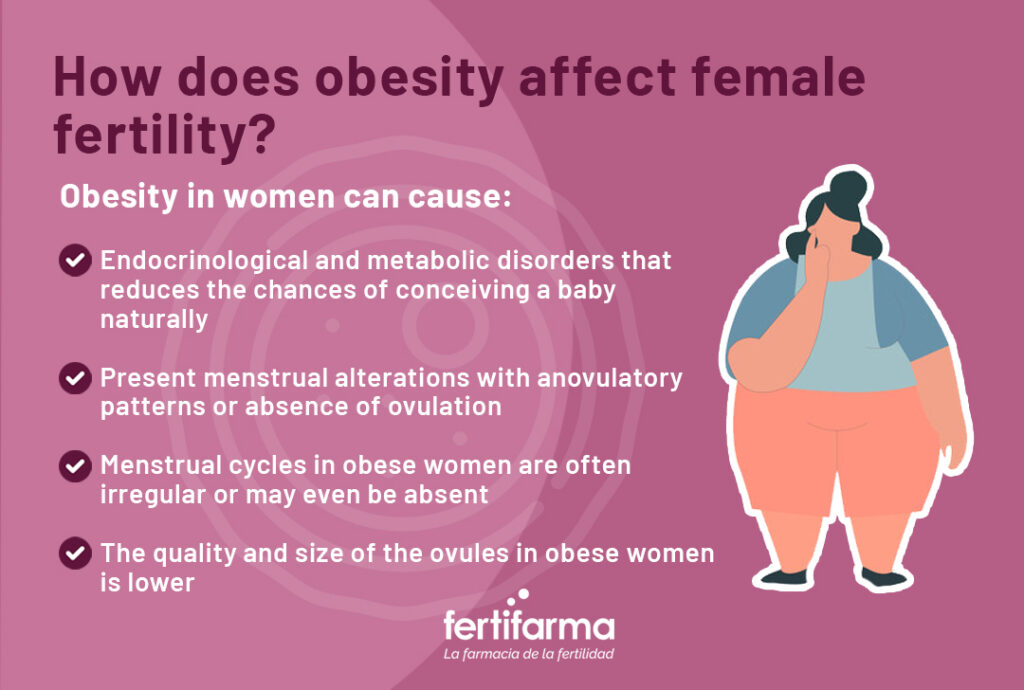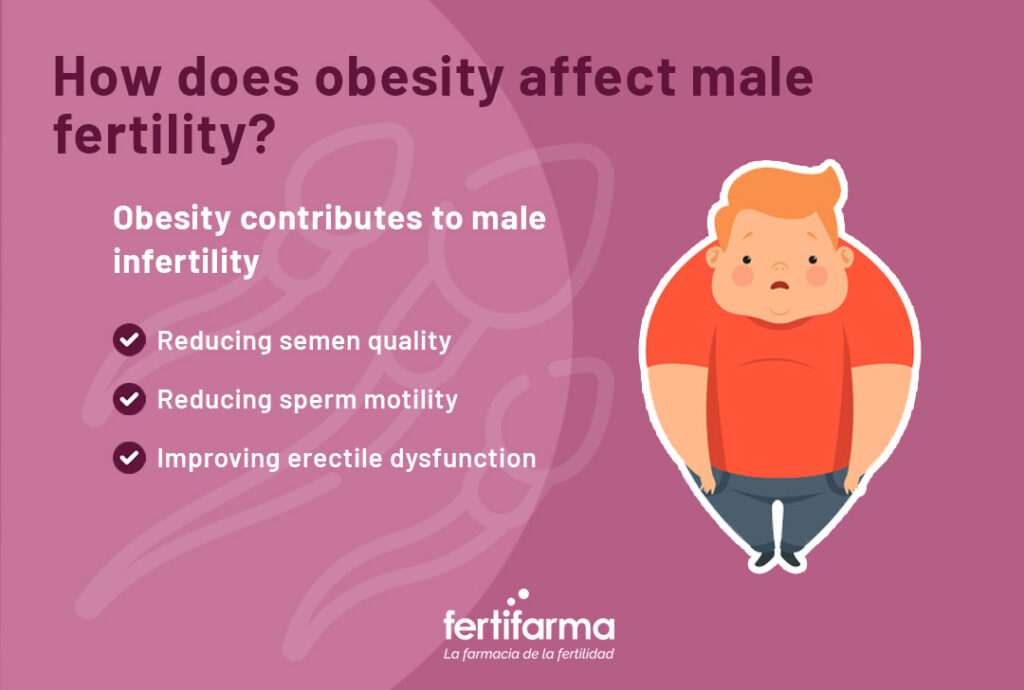Obesity is currently a common health problem in individuals of all ages, and women and men of reproductive age are no exception. Obesity is the result of an energy imbalance between what you eat and what you spend, so, obesity implies an excessive accumulation of fat in the body that negatively affects the health of those who suffer from it. Remember that both being overweight and obese can affect both female and male fertility.
How does obesity affect female fertility?
How does obesity affect female fertility? Obesity in women can cause endocrinological and metabolic disorders that reduces the chances of conceiving a baby naturally; Obese women more frequently present menstrual alterations with anovulatory patterns or absence of ovulation, which affects pregnancy both naturally and through assisted reproduction.

It has been documented that menstrual cycles in obese women are often irregular or may even be absent, which is known as amenorrhea. In addition, it has been detected that the quality and size of the ovules in obese women is lower, this will translate into lower fertilization rates, fewer embryos and of poorer quality and, therefore, in a lower probability of getting pregnant.
Assisted reproduction treatments will also be less effective in the presence of obesity. In this way, the effectiveness of both ovulation induction, in vitro
fertilization/intracytoplasmic sperm injection, and egg donation in women suffering from obesity, will be lower because high doses of gonadotropin will be required or less possibility of ovulatory treatments, respectively.
The good news is that losing weight can help reverse the oocyte problem in most cases. It has been observed that women who lose weight manage, over time, to normalize ovulation and, therefore, increase their chance of pregnancy. This same benefit occurs in women who undergo assisted reproduction treatment.
How does obesity affect male fertility?
Obesity contributes to male infertility by reducing semen quality, reducing sperm motility, and improving erectile dysfunction among other physical problems. Mechanisms to explain the effect of obesity on male infertility include abnormal levels of reproductive hormones, sleep apnea, and increased scrotal temperature.

The good news is that weight loss through diet has shown promising results in restoring fertility and normal hormonal profiles.
Remember that a diet that helps reduce weight in combination with adequate physical activity are the steps to follow to improve fertility in women and men who suffer from obesity and who have infertility problems. People who lose weight are more likely to get pregnant both naturally and using assisted reproduction treatments.

